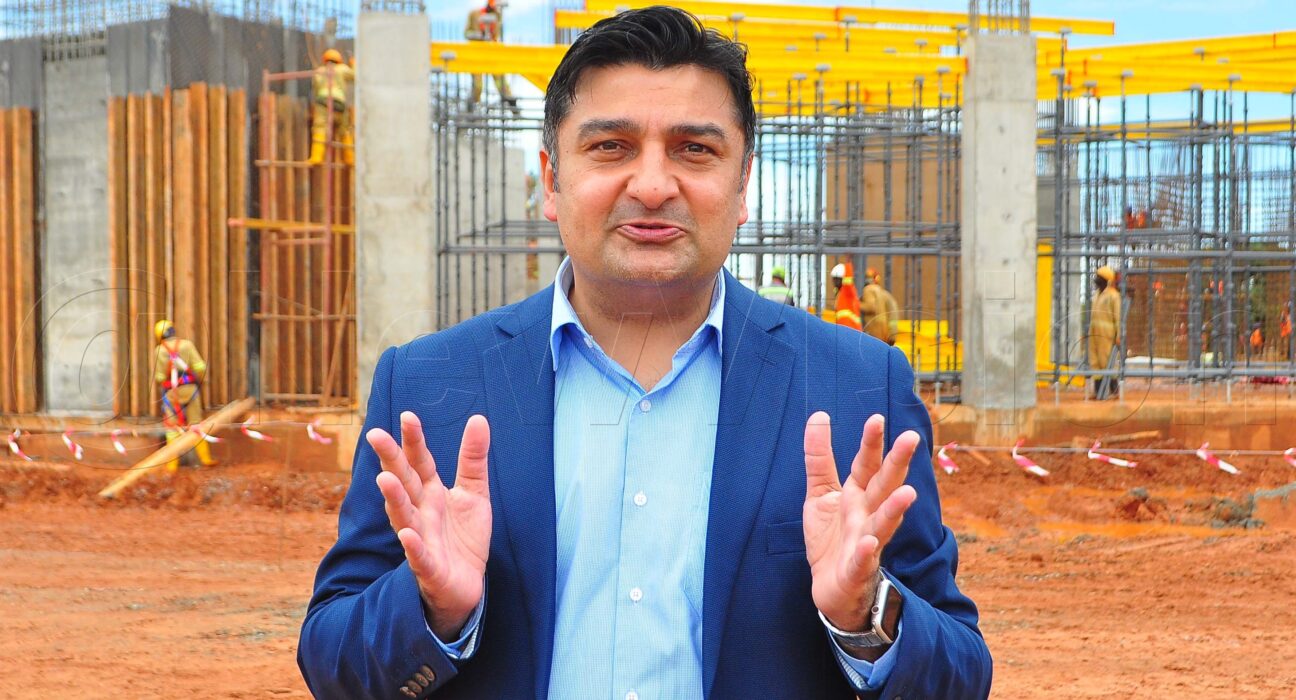This article was first published on the New Vision website on April 28, 2023
Carol Kasujja Adii

Yesterday, Aga Khan University launched the construction of its new campus and ultra-modern hospital in Nakawa, Kampala. The hospital is going to offer specialised treatment to Ugandans and patients from neighbouring countries. CAROL KASUJJA caught up with Rashid Khalani, the Chief Executive Officer of Aga Khan University Hospital, for more on this development and what it means for the health sector in Uganda.
| Q |
: Congratulations on launching your new campus! Why should
Ugandans be excited about the Aga Khan University Hospital?
| A |
We have a good number of Africans who travel abroad to seek specialised treatment. However, with the Aga Khan University Hospital here, Ugandans will not need to travel abroad for treatment because we are bringing services that are not offered in Uganda, closer. The result of this is an economic and social benefit for patients in Uganda and across the region. Ugandans should also be excited because in addition to the hospital, our new campus in Kampala will provide quality education, training and research to be able to offer the best medical treatment. The cutting-edge research will enable the Aga Khan University Hospital bring new knowledge in areas that Ugandans desperately need. Our hospitals in Nairobi, Dar es Salaam and Karachi are certified and accredited by the US Joint Commission International — a gold standard or first class hospitals. This hospital in Kampala will also follow this route.
How many Ugandans have been travelling to Nairobi for treatment?
Twenty per cent of our patients are from neighbouring countries such as Rwanda, Tanzania and DR Congo, but on top of the list are Ugandans. Most of the Ugandans we receive come when they are battling cancer, heart diseases, infectious diseases and neurological
issues.
What is the capacity of the hospital?
The first phase will have a 100-bed capacity and we are going to provide advanced care and specialties in women and child health, cardiology and cardiothoracic surgery, regenerative medicine and neurology.
You are going to be offering quality care; will poor Ugandans be able to get treatment from the facility?
Yes, we are going to provide high quality healthcare, but that is not to mean that the hospital is meant for only the rich.
We are going to treat everyone who needs care.
Patients who may not be able to afford the fees will be catered for through the Aga Khan University’s Patient Welfare Programme, (PWP). Offering high care comes with a price, but it is our responsibility to make medicine available to all the population and we will do everything in our means to do that.
Doctors in Uganda are always moving from one hospital to another, why should doctors be excited about the Aga Khan University Hospital?
Doctors want health facilities where they can practise good medicine and we are going to provide an enabling environment for them, especially with the latest technology. They need this in their day-to-day operations. We are going to provide doctors with good remuneration, even those who left the country will come back home to work from here. We are also going to train doctors, nurses, midwives and allied health professionals who will acquire the competence and confidence to provide excellent care. This will transform the healthcare institutions and systems by making them work more effectively.

Should we say the Aga Khan University Hospital is going to solve all Uganda’s health problems?
As an institution, we cannot solve all Uganda’s health problems alone. We are not here to compete with anyone. To be able solve some of the health problems, you need to work with other public institutions.
Could you highlight to us the various facilities that will be hosted on this campus.
When complete, the facility will consist of a university hospital, teaching facilities, and students’ hostels. The project will not only expand our reach and impact as a university but it will also provide greater access to education and healthcare to Ugandans and neighbouring countries. One important thing people should know is that we are already providing healthcare services in Uganda through our outpatient medical centres at the Acacia Mall, Metroplex Mall in Naalya and Diamond Trust Building on Kampala road.
Why should medical students choose to join Aga Khan University?
The most important thing in academics is knowledge, not the piece of paper.
It is not the kind of degree, but the knowledge you acquire. In this campus, we will have a post-graduate Medical Education Programme that will train specialist doctors in different fields including, internal medicine, surgery, paediatrics and obstetrics and gynecology, to beef up the existing team of professionals in Uganda for better service delivery.
Medical education is expensive; do you have plans for students who will not be able to afford the fees?
Over 80% of our students across our campuses are on some form of financial assistance, as we believe no student should be denied quality education because they cannot afford it.
This policy will be applicable at our Kampala campus.

Do you have hopes of establishing other branches in Uganda?
Even as we build the new teaching hospital, we are going to add to our existing outpatient medical centres located in Kampala. We are looking at expanding in other regions like Arua, Jinja and other cities to improve the quality of life. In addition, the mock-up building of this new campus will be transformed into an Outpatient Medical centre. The Nakawa Outpatient Medical Centre will open its doors to patients early next year.
What is cost of the project?
The first phase, planned to be completed by 2026, will cost $100m (about sh370b).









Leave feedback about this